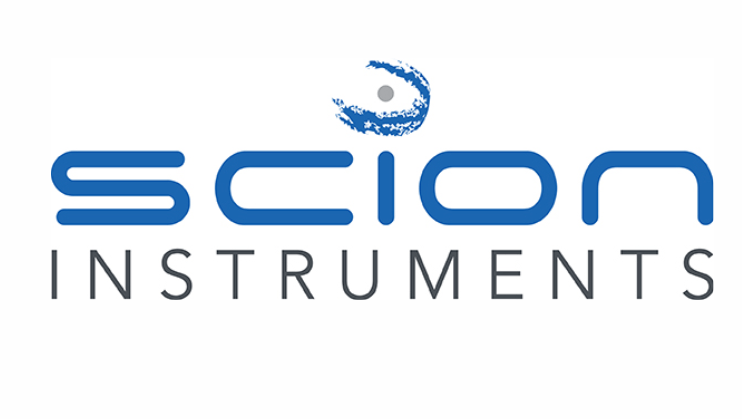From Analysis to Application : Understanding Gas Chromatography
Today, we’re exploring the world of gas chromatographs.
Did you know that gas chromatography can identify trace amounts of substances at levels as low as parts per billion?
This precision is crucial in various industries, including pharmaceuticals, environmental science, and food safety.
For a more general introduction to the topic, take a look at our post on Chromatography Explained to get a clearer overview.
What is a Gas Chromatograph?
A gas chromatograph is an analytical tool used to separate and analyse compounds in a mixture. It acts like a highly efficient detective, revealing the secrets hidden within complex samples.
Brief History of Gas Chromatography
Gas chromatography emerged in the mid-20th century, specifically in the 1950s, as a revolutionary technique for substance analysis. One of the key milestones was in 1952 when A.J.P. Martin and R.L.M. Synge were awarded the Nobel Prize for their pioneering work on partition chromatography. This laid the groundwork for gas chromatography, enabling quicker and more accurate results. Over the years, advancements in technology have made it essential in diverse fields, from healthcare to environmental monitoring.
How Does Gas Chromatography Work?
image credits – wikimedia commons
Gas chromatography operates on the principle of separation. When you inject a sample into the chromatograph, it travels through a column filled with a stationary phase. As the sample moves, different components interact with the stationary phase in unique ways.
Some components may cling to the stationary phase longer than others, causing them to move at different speeds, while Some components are like fast cars zooming down a highway. As a result, the faster components reach the finish line sooner than the slower ones, leading to a neat separation of each compound for analysis.
Importance of Temperature Control and Carrier Gases
Temperature control plays a crucial role in gas chromatography. By managing the temperature of the column precisely, you can influence how quickly different components travel through it. For example, increasing the temperature can help volatile substances elute faster.
The choice of carrier gas, commonly helium or nitrogen, also affects separation quality. Helium is often preferred for its inertness and optimal flow rates, enhancing resolution and sensitivity.
Components of a Gas Chromatograph
Key components of a gas chromatograph include:
- Injector: Where the sample is introduced, typically using a syringe.
- Column: The core of the system where separation occurs, usually coated with a stationary phase.
- Detector: This part identifies and quantifies the separated components, converting them into readable data.
Together, these elements work seamlessly to provide accurate results.
Applications of Gas Chromatographs
In Pharmaceuticals:
Gas chromatographs are invaluable in the pharmaceutical industry. They assist in drug analysis and quality control, verifying the purity of active ingredients. For example, during the development of a new drug, gas chromatography can detect impurities that could affect efficacy and safety.
A notable case involved the use of gas chromatography in the analysis of the painkiller OxyContin, where its formulation was closely monitored to ensure consistent quality.
Environmental Analysis:
Gas chromatographs play a vital role in monitoring pollutants in the air and water. They analyse environmental samples, helping scientists understand what’s in our surroundings. For instance, researchers utilise gas chromatography to monitor air quality by detecting volatile organic compounds (VOCs) that contribute to pollution.
In a recent study, gas chromatography was instrumental in assessing benzene levels in urban air, guiding policy decisions for cleaner air standards.
Source: Abinaya Sekar, George K. Varghese, M.K. Ravi Varma – Analysis of Benzene air quality standards.
Food Safety and Quality Control:
In the food industry, gas chromatographs are essential for detecting contaminants. Whether checking for pesticides, analysing flavour profiles, or ensuring product consistency, this technology helps maintain food safety.
For example, a study found pesticide residues in apples, prompting a recall and stricter regulatory measures. By using gas chromatography, companies can ensure their products meet safety standards and maintain customer trust.
Source: S.C. Cunha, J.O. Fernandes, M.B.P.P. Oliveira
Forensic Science:
Gas chromatography is also critical in forensic investigations. It helps analyse evidence, such as substances found at crime scenes, aiding law enforcement in solving cases. In the realm of forensic science, gas chromatographs are like the meticulous analyst—always ready to uncover the details hidden within complex samples.
For instance, in a high-profile case, gas chromatography was used to analyse samples from a crime scene, leading to the identification of a suspect based on trace chemicals found at the site. This technology has become a staple in forensic labs, enhancing evidence collection and analysis.
Source: ChromatographyToday
At Smart LabTech, we are dedicated to providing innovative laboratory solutions that enhance research and analysis capabilities. Our commitment to quality and customer satisfaction drives us to offer state-of-the-art equipment that meets the evolving needs of scientists and researchers across various industries.
For gas chromatography, we proudly offer Scion’s gas chromatographs, renowned for their advanced technology and reliability. Scion devices are designed to improve laboratory workflows, with many users reporting significant increases in efficiency.
Elevate your laboratory’s capabilities by exploring our range of Scion gas chromatographs today. With options tailored for diverse applications, you’re sure to find the ideal solution for your laboratory’s specific needs.
For any product enquiries please reach out to marketingsupport@smartlabtech.net or call us at 72888 88016

